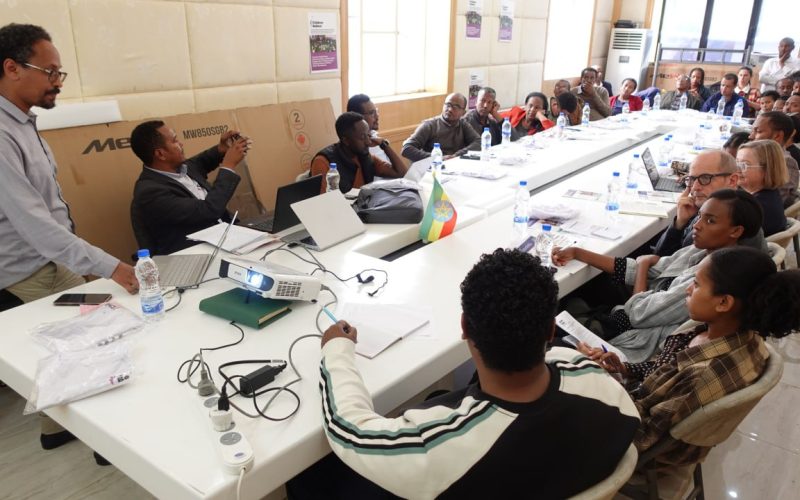Children Believe, in collaboration with researchers from Addis Ababa University, the Ministry of Women and Social Affairs, Young Life, and other international and global partners, has unveiled groundbreaking research on integrating Early Childhood Care and Education (ECCE) into Ethiopia’s educational policy framework.
This initiative comes amidst a growing recognition of ECCE’s pivotal role in fostering holistic child development and advancing sustainable development goals.
The research findings underscore that ECCE programs are not merely foundational but transformative.
By emphasizing play-based learning and supportive environments, ECCE equips children with essential cognitive, social, emotional, and physical skills.
This preparation ensures that children are not only academically prepared but also resilient and adaptable in an ever-changing world.
Key Findings from the Study:
-Comprehensive Child Development: ECCE lays the groundwork for lifelong learning by nurturing critical skills such as problem-solving and emotional resilience.
-Parental Engagement and Community Cohesion: ECCE promotes family involvement in children’s education, fostering stronger community ties and supportive family dynamics.
-Empowerment and Inclusion: By empowering women through increased workforce participation, ECCE contributes to gender equality and economic growth.
-Health and Well-being: ECCE initiatives promote physical health and hygiene practices, addressing prevalent health issues among children.
These insights underscore the urgent need to prioritize ECCE within Ethiopia’s educational policy.
By integrating these findings, Ethiopia can ensure universal access to quality early childhood education, aligning with Sustainable Development Goal 4 on Quality Education and enhancing overall societal well-being.
Integrating ECCE research findings into Ethiopia’s educational policy offers significant advantages for sustainable development and meeting SDG targets, particularly aiming for 30-40% outcomes related to early childhood education.
By prioritizing ECCE within the policy framework, Ethiopia can ensure that all children receive a solid foundation in holistic development from an early age.
This approach fosters cognitive, social, emotional, and physical growth, preparing children for lifelong learning and contributing to reduced educational disparities across urban and rural areas.
Children Believe’s Country Director, Nebiyu Solomon, expressed optimism about the findings, stating, “Integrating ECCE into Ethiopia’s educational policy is not just an investment in children but a commitment to sustainable development.
By laying a strong foundation in early childhood, we pave the way for a prosperous future for all Ethiopian children.”
The research findings disseminated to stakeholders involved in children’s education and care.
By advocating for ECCE integration, Children Believe seeks to catalyze collaboration among educators, policymakers, caregivers, and community leaders towards a brighter future for Ethiopia.
Children Believe is an international NGO dedicated to empowering children, families, and communities worldwide.
Focused on overcoming poverty and injustice, the organization emphasizes the transformative power of education.
As a member of the ChildFund Alliance, Children Believe operates in 70 countries, supporting nearly 36 million children and their families.
In Ethiopia, where they have worked since 1987, they have expertise in Early Childhood Care and Development (ECCD), Maternal and Child Health and Nutrition (MCHN), and youth employment, adapting to diverse and challenging contexts.
